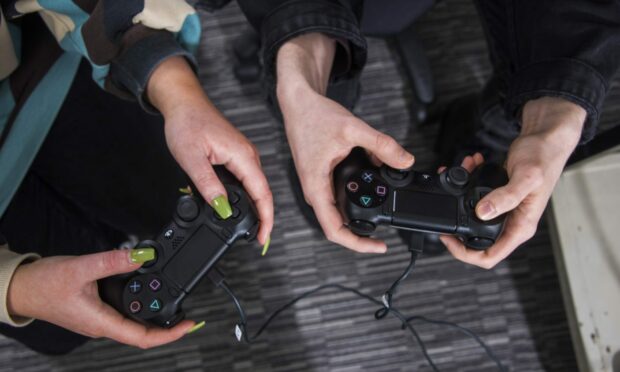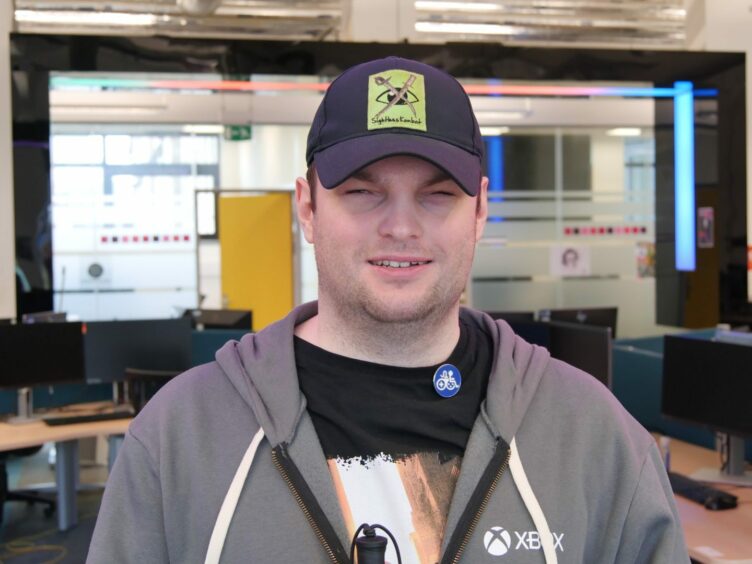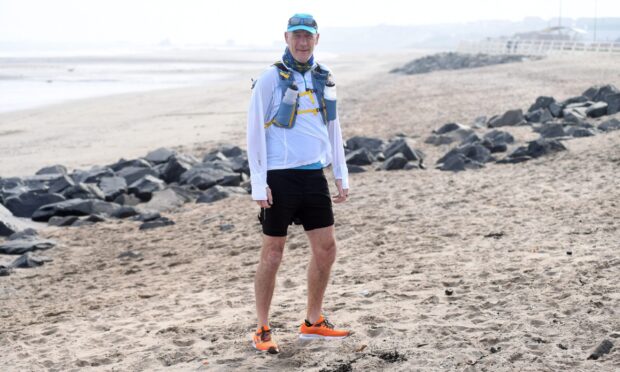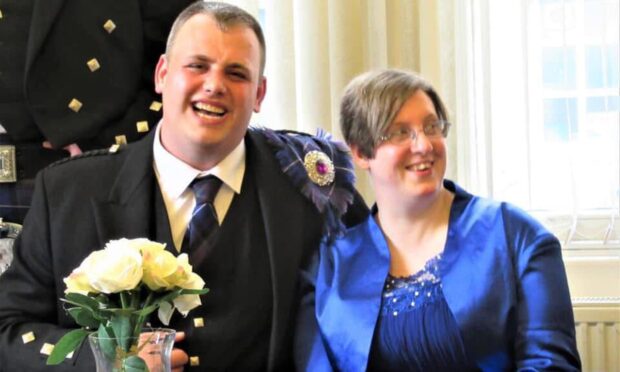Dundee’s Abertay University is playing host to an event which will reboot gaming making it more accessible for all.
The City of Discovery is know for having a strong games legacy.
And Abertay has been running games courses for more than 20 years, making it a perfect location for the event.
The first Accessible Gaming Symposium began yesterday in person at the Bell Street campus and online, finishing up today.
Those attending will investigate how to make gaming more accessible for those with sight loss.
We speak to one gamer without sight who is involved in the event.
Abertay are teaming up with Royal National Institute of Blind People (RNIB).
Dr Robin Sloan, Abertay University senior lecturer in the division of games and arts, says: “Abertay University is ideally placed to help push for progress in this important area.”
How will this event help?
The event will bring together some of the world’s leading studios, developers, academics and gamers with vision impairment.
They’ll get the chance to discuss issues which include technical challenges which developers face in designing more accessible games.
It’s also hoped they’ll identify areas for further research.
In recent years, games like The Last Of Us Part 1 for PS5 have embedded extensive accessible features which means people with sight loss or visual impairment can play.
But a report found more work is needed.
What do people with sight loss say?
The event follows on from RNIB’s first ever report into accessible gaming which was published earlier this year.
It found around 70% of people with sight loss surveyed say it’s a barrier to playing games.
They also have to use a range of coping strategies to enjoy their gaming hobby.
‘We want to be able to play your games’
RNIB’s Ben Breen is the accessible gaming and immersive technologies research officer and has been blind since birth.
He has developed a first-hand understanding of the challenges, first finding a love of gaming when he was a teenager.
Describing himself as “a gamer without sight” he’s an advocate for accessibility in mainstream gaming.
Before joining RNIB, he worked as an accessibility consultant and often writes reviews where he gives his expertise and advises on accessibility features.
He says: “Although over the last few years there has been progress made with a variety of games, many with sight loss still feel they are left in the dust.
“It’s great to be able to bring together representatives from the industry to hear first hand the perspectives and ask questions about what needs to be done.
“It’s about being able to plan the future from a point in the present.
“The industry will be able to ask what work is needed.
“And we can say we really want to be able to play your games – here’s how to make it happen!”













Conversation